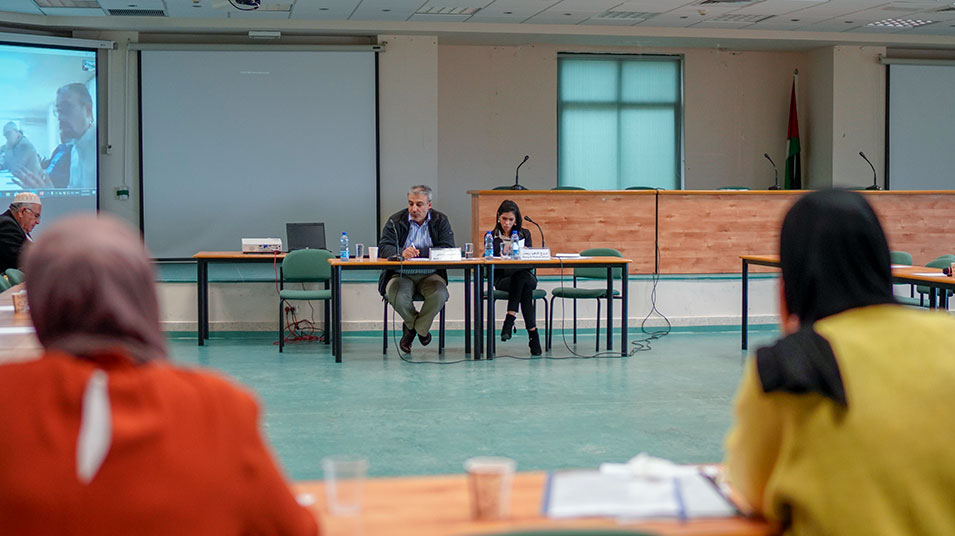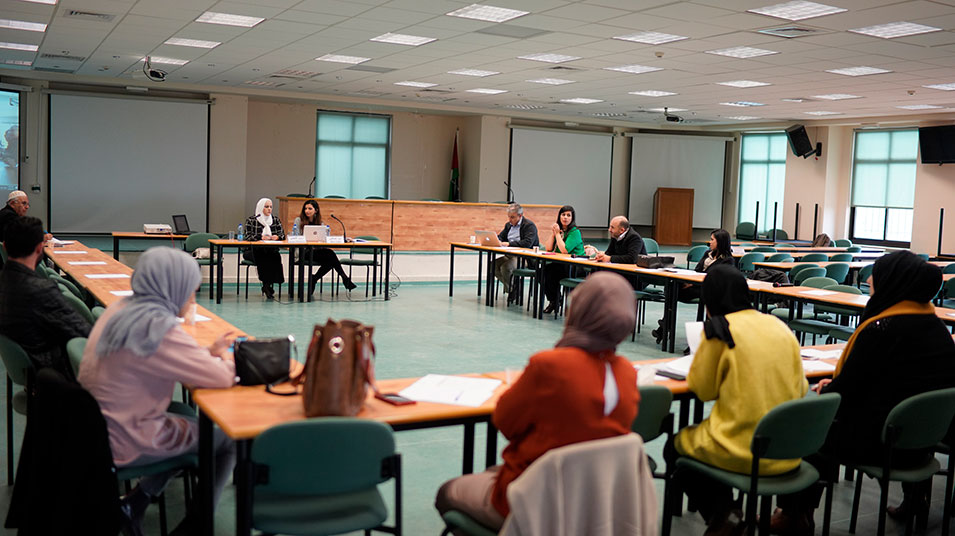Legal symposium explores reality of Palestinians’ economic and social rights
Birzeit University’s Institute of Law (IoL) and Konrad Adenauer Stiftung (KAS) held a symposium on economic and social rights, highlighting the right to health, work and housing, on December 4, 2019. The symposium featured legalists, experts and representatives of public and civil organizations.
Reem Albatmah, the director of the institute, explained that the symposium centered around a number of research papers prepared by scholars from the West Bank and the Gaza Strip. Jamil Salem, a legal researcher at the institute, highlighted that these studies put the rights to health, work and housing into their legal frameworks, outlined by the international agreements Palestine has signed on to.
The symposium’s first session discussed the right to health. Researcher Mira Salhi outlined the Palestinian government’s responsibility in providing adequate health services and supplying a healthy environment for its people. Researcher Osama Balawi spoke about the obstacles and restrictions that prevent Gazans from enjoying their fundamental right to accessing and receiving health care.
Facilitating the session was Arwa Tamimi, director of the Legal Affairs Unit at the Palestinian Ministry of Health, who stressed that the right to health is a fundamental economic, social, and cultural right that should be guaranteed for all Palestinians and includes access to health care and medical insurance coverage.
Featuring the researchers Marouj Rihan and Mohammad Abu Hashem, the second session explored Palestinians’ right to life and discussed the government’s role in providing the basic requirements necessary in order to protect workers and maintain their rights in the West Bank and Gaza Strip. Zakariya Salout, a legalist, talked about Gazan farmers and explained how the law should be enhanced to maintain farmers’ rights, especially amidst the ongoing Israeli restrictions on access to their farmlands.
Mohammad Khader, a legal researcher at the IoL, facilitated the second session. He explored the economic effects of the laws that regulate the right to work in Palestine and examined their impact on economic growth and employment.
The third session tackled issues related to the right to housing, where Salhi reaffirmed the Palestinian government’s duty to provide adequate housing for its population. Mohammad Talbani presented a paper that examines the role of the legislative in protecting Gazan’s right to housing, while Ghassan Abu Hatab talked about the importance of implementing the agreed-upon reconstruction plans in Gaza.
Facilitating the session was Salem, who emphasized that the political fragmentation of Palestinians plays a prominent role in this matter, as it increases the government’s inability to guarantee Palestinians their right to housing.









